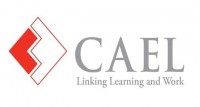Business Champions Leaders Share Secrets Of Success
Discuss Best Practices To Bridge the Skills Gap and Help Employees Develop the Skills and Knowledge to Succeed
CHICAGO, IL, USA, December 2, 2016 /EINPresswire.com/ -- Several members of the employer-led Business Champions Supporting Adult Credential Completion initiative were recently in Chicago to review efforts underway to ensure that more working adults obtain industry-recognized credential or college degrees to fulfill job demands, Council for Adult and Experiential Learning (CAEL) CEO and President Pamela Tate announced today. The meeting, "The Working Learner: Business Champions Share Key Workplace Initiatives" was held at CAEL's international conference and was designed to share best practices to encourage business to adopt practices that help working adults earn the credentials they need to succeed."We have a skills supply and demand problem that is hurting businesses and our economic growth, and we must build and nurture a next-generation workforce and push for more adults to attain industry-recognized credentials and college degrees needed for tomorrow's jobs," said Tate. "Many Business Champions are successfully addressing this issue through programs that help employees earn high school diplomas, college degrees or other meaningful credentials. This was an excellent opportunity to hear about how those programs are working. It isn't a problem that will be solved overnight, but these programs are working and delivering results."
Moderated by John Colborn, COO JEVS Human Services, (former Director of Skills for America's Future, The Aspen Institute) the panelists included Mary Jo Burfeind, Vice President, Human Resources, Blue Cross Blue Shield, Michael Johnson, Retired CHRO UPS, CEO, Johnson Talent Development and Kimo Kippen, Chief Learning Officer for Hilton Worldwide. The panelists discussed a variety of initiatives in place to help employees and the elements necessary in them to ensure success. Panelists outlined a host of programs ranging from apprenticeships and advising to others that waive tuition until after the student has graduated to reduce out-of-pocket expenses for employees. They also discussed the value of partnering with colleges and universities and of offering on-site and on-line degree options.
According to Kippen, companies should evaluate the entire workforce and identify various pathways it can support to help the employees reach their goal. "I try to think about where our Team Members are in their lives and in their educational pursuits," asked Kippen. "When you think about it that way, you can't help but to carve out pathways to help get them there. In our case, it may be about obtaining their GED or a high school diploma, or an apprenticeship, or skills training, or a leadership development program. We have to be able to serve our Team Members' needs with a diverse portfolio of educational options. We know that learning leads to a great career and a great life, which is why we work to create programs that meet the needs of our team members in the way that they want to learn."
Burfeind said that corporate and university partnerships are very valuable for both organizations but the key is flexibility. "Setting aside some standards, offering waivers and tuition discounts are really helpful," she said. "In our company tuition reimbursement expenses are always high but the program delivers such value it is always supported."
Johnson said that it is important for the company to be clear about what its objectives are. "The school needs to be clear about what it is getting out of the partnership and the company needs to understand its internal goals and continuously evaluate the data," he said. "You can't just go to the ribbon cutting and then leave. As the demands on your workforce change you need to constantly evaluate if you are meeting your goal or if you need to make adjustments. In the end you need to recognize that you are preparing your workforce for the demands of tomorrow."
Increasing postsecondary credential achievement will be critical to keeping the country competitive. In a study by the Georgetown University Center on Education and the Workforce, the nation is currently on track, by 2020, to have a shortage of 5 million workers with postsecondary credentials. Business Champions for Credential Completion is designed to help bridge the shortage and is funded by Lumina Foundation and administered by the Council for Adult and Experiential Learning. It includes top companies across the United States representing a wide variety of sectors from agriculture to health care to retail.
"At CAEL, we're constantly reminded that in the next decade, more than half of all American jobs will require employees with postsecondary credentials, and we thank the program participants for sharing their success as we work together to address this issue," concluded Tate.
The Council for Adult and Experiential Learning (CAEL) is a nonprofit 501(c) (3) organization based in Chicago, Illinois that assists adults with their educational endeavors. CAEL works with the public sector, private sector industries and higher education institutions to ensure that adult students and workers receive the most efficient training and education to occupy a meaningful professional place in a 21st century economy.
# # #
Jackie Clark
Council for Adult and Experiential Learning
2402521340
email us here

